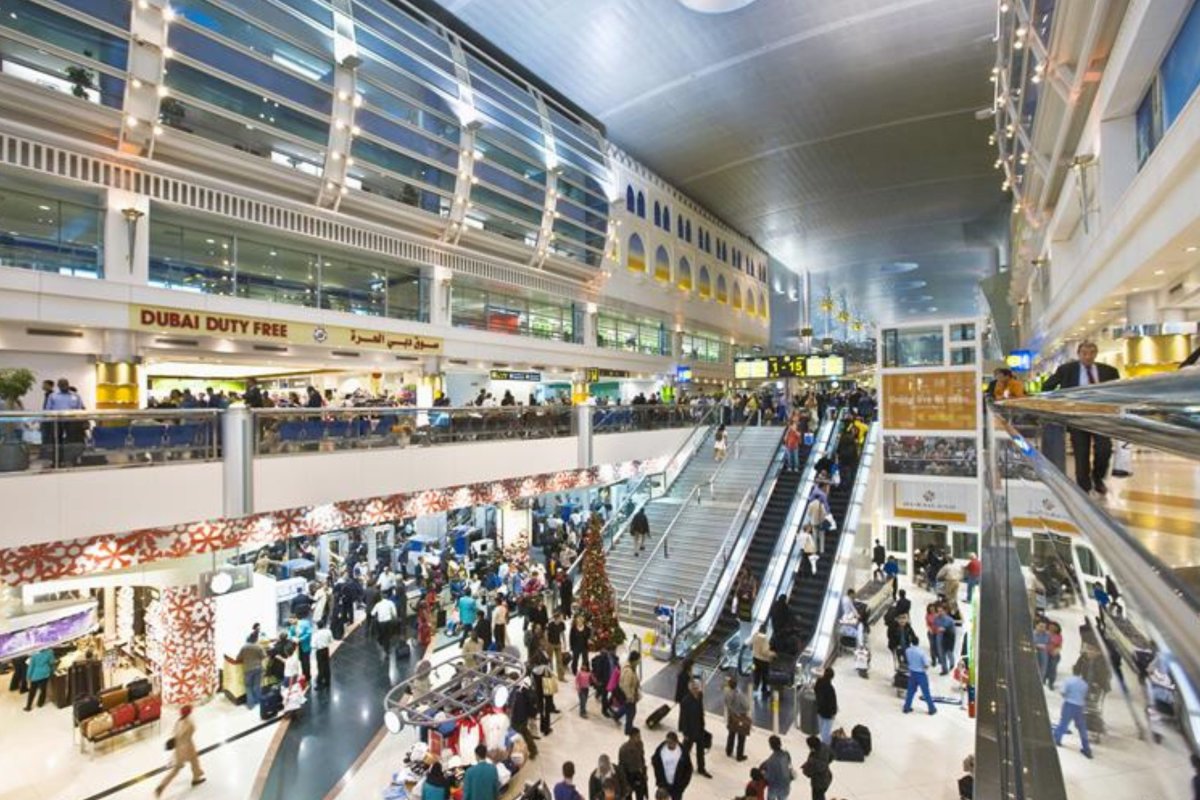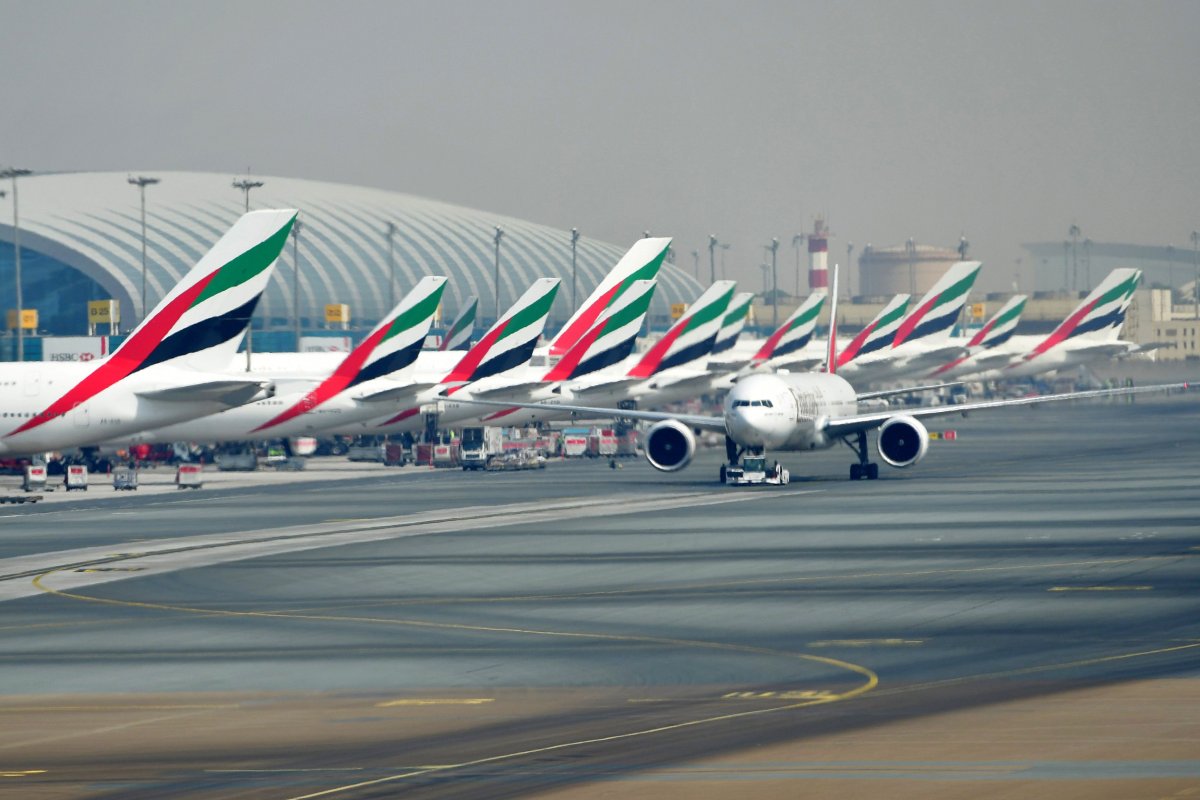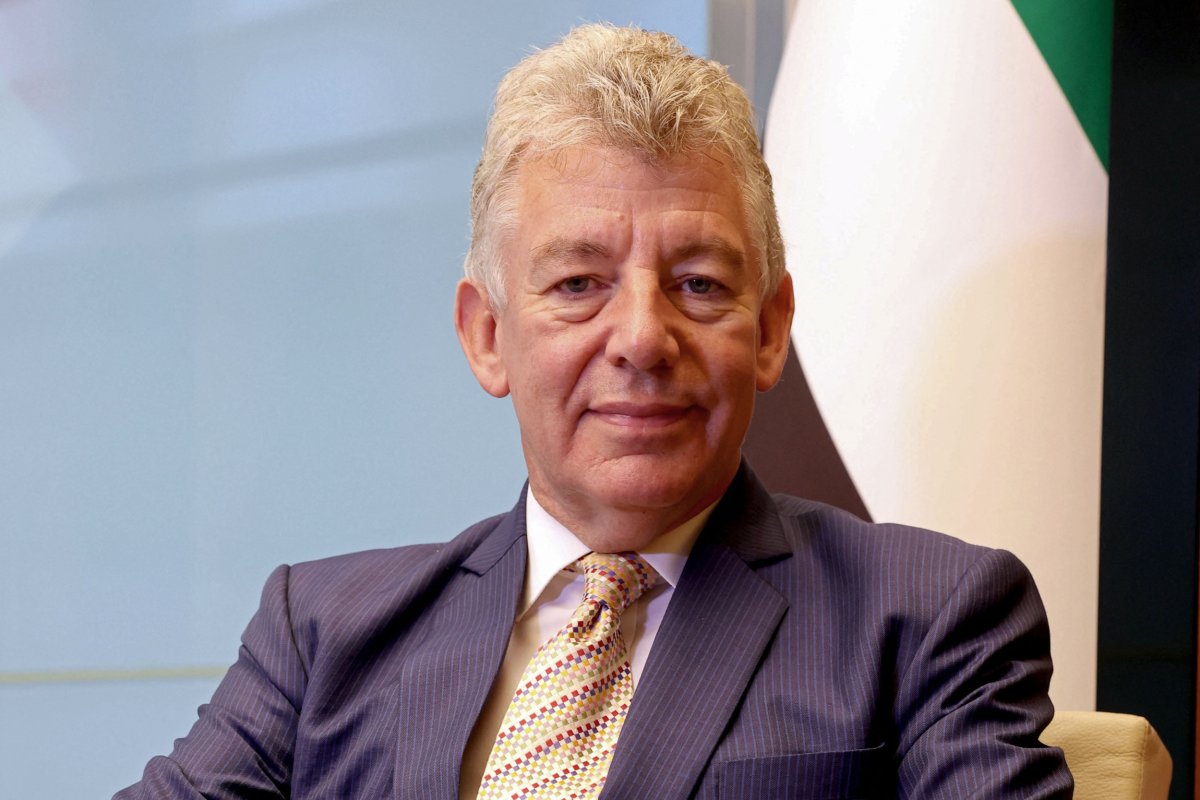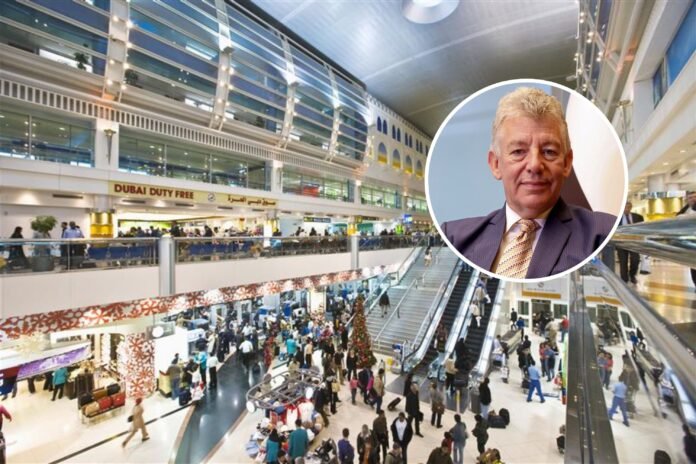The chief executive managing the world’s busiest airport is on a mission to eliminate the friction of air travel and redefine what an airport can be.
Speaking during Newsweek’s inaugural New Destinations Travel & Tourism Summit on July 3 and in a separate interview with Newsweek, Paul Griffiths, the CEO of Dubai Airports, laid out a sweeping vision for the future of airports among other experts in the travel industry.
Dubai Airports is the authority that owns and operates airports in the city, including Dubai International Airport (DXB); it has ranked as the world’s busiest airport for international passenger traffic since 2014.
Opening the discussion floor at the event, Amit Shah, executive vice president of Newsweek International, said that the story of travel is “changing faster than ever.” He added that “travelers want deeper, more authentic experiences; destinations want to stay unique and protected; and the industry must balance growth with genuine care.”
Griffiths said that “people don’t have the vision that an airport should be a place of hospitality … a place of welcome.” He added that, “when people come to a country, the first experience they get is the airport experience. When they leave, it’s the last impression they have.”
Dubai International Airport is coming off a record year. In 2024, it welcomed 92.3 million guests, surpassing its previous high of 89.1 million in 2018. Over the last decade, DXB has served more than 700 million passengers on over 3.3 million flights.
The airport authority is looking to build an even-bigger hub with the expansion of Dubai’s Al Maktoum International Airport; “when ultimately completed, [it] will be 260 million passenger capacity—by far the largest, more than double anything that exists at the moment,” Griffiths said at the event.

Newsweek
‘Reimagining the Airport Experience’
Griffiths said “reimagining the airport experience, it shouldn’t be a hard thing,” and he is determined not to replicate outdated models.
“The worst nightmare is, if we’re doubling the size of check-in, we’re doubling the queues, we’re doubling the walking distances,” Griffiths said. “We don’t want to build ever-bigger things; we want to build faster things with much-better processing times.”
Instead, Griffiths outlined a plan to decentralize operations into “something like eight smaller airports” linked by high-speed rail. The aim is to create a seamless connection from city to gate, with integrated logistics that minimize the distance between travelers and their aircraft. “You can book into a railway station and then transition seamlessly from your plane onto the train with a few steps,” Griffiths said.

Maremagnum/Corbis Documentary RF/Getty
Scrapping the Outdated Check-in System
Asked whether he is planning to scrap the traditional check-in experience at Dubai International, Griffiths said at the event: “Utterly and totally.”
This transformation hinges on the abandonment of legacy systems. Griffiths was especially critical of current baggage procedures. “Why do you have to go to the airport and actually stand in line and then drop your bag off?” he asked. “Why, in the 21st century, are we sticking paper labels on suitcases?”
Griffiths described the process as “just so ridiculous,” adding “every luggage manufacturer could print a unique barcode on a suitcase, which could be read by the airport systems and there you can track wherever it is in the world on whichever airline.”
Griffiths repeatedly returned to a central premise—the airport experience must be frictionless. He told Newsweek: “What we’re trying to do is combine one biometric signature that happens when you walk into the airport—you won’t even see the cameras, you won’t know it’s happening—that does check-in, seat allocation, baggage registration, security and immigration—all done.”
Such an approach could render many traditional steps obsolete. “If you ever go to a car showroom and buy a car, and they give you the car, and they say, ‘By the way, see those four wheels; you’re gonna have to bolt them onto the car yourself’—I mean that doesn’t happen,” Griffiths said. “We have to rethink and go back to basics.”
Maximizing Efficiency With AI
Dubai Airports is already experimenting with technologies to improve operations, including AI-powered video analytics during aircraft turnarounds. Griffiths said: “If, for example, the catering truck arrives, and it stays there for too long … you can analyze how far behind the optimal time they are, then you can have a look at how you might be able to improve that,” he added. “It’s a very interesting journey; we’ll learn a lot from it.”
Griffiths said: “I think the technology exists to do virtually anything in the world; we’re just reaching the limits of human ingenuity in sectors that really do need to change, and I think that’s going be the case in the aviation industry, thinking of different ways of doing things.”
And it is not just the check-in process that needs change. Griffiths added that AI also has potential to revolutionize airport security and baggage screening. “Now, AI is so clever. I’m sure AI could analyze the imaging and give a far-higher level of accuracy … so, why don’t we make that whole process far less intrusive, far more accurate and far quicker and far safer?” he asked.

GIUSEPPE CACACE/AFP via Getty
Stopping Traffic for ‘Missile Break’ and Other Challenges
The executive said that one of the biggest challenges in managing DXB is the sheer scale of the operation. “If anything goes wrong at my airports, you’ve got 200 people a minute wanting to know what’s gone wrong very quickly,” Griffiths said. While Dubai Airports employed 3,550 people in 2007, it now serves 96 million passengers with a staff of just 17,000.
Even amid regional tensions—such as the recent U.S. missile strikes on Iran—Griffiths said the team maintained smooth operations.
Griffiths said at the event: “I’ve never had a phone call [where someone asked], ‘Oh, would you stop all the planes for about 60 minutes while we have a missile break?’ I mean that’s never happened before, but we literally got that call” saying, “there’s gonna be a few things not under normal air traffic control that will be passing through your airspace.”
“We rerouted all of our Western traffic across the southern part of Saudi Arabia … and through Oman to avoid the problem on the northern side,” Griffiths later told Newsweek. “We got around it by just using operational contingencies.”
Griffiths emphasized that successful airports must understand their role beyond logistics.
Sometimes, he added, hospitality means personalization. “I had someone who said, ‘Could I get someone to stamp my passport because I first arrived in Dubai in 1965 and would like to have another stamp saying my next arrival time is 60 years later?’ and we arranged that,” Griffiths said.
Dubai’s baggage system, the largest in the world, stretches 140 kilometers, or 87 miles—nearly the distance between Dubai and Abu Dhabi, Griffiths said. “Our lost-bag rate is seven times better than the world average,” he added. “The world average, when you travel, your luggage has about seven bags out of every 1,000 misrouted, and ours is less than one every 1,000 bags.”
Griffiths said he believes most airports fail at their core mission. “They’re misunderstanding the fact that they need to be there to reassure travelers … every single customer needs to be treated as an individual,” he added. “I’m trying my best to educate architects on what makes a good airport … some of them are listening, which is great.”

GIUSEPPE CACACE/AFP via Getty
Do you have a travel-related story to share? Let us know via life@newsweek.com and your story could be featured on Newsweek.






